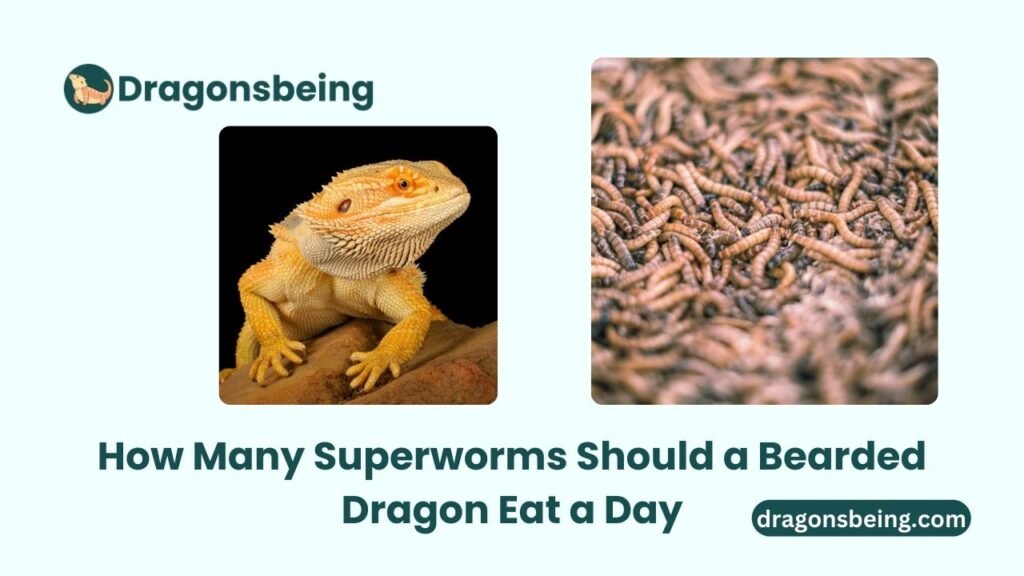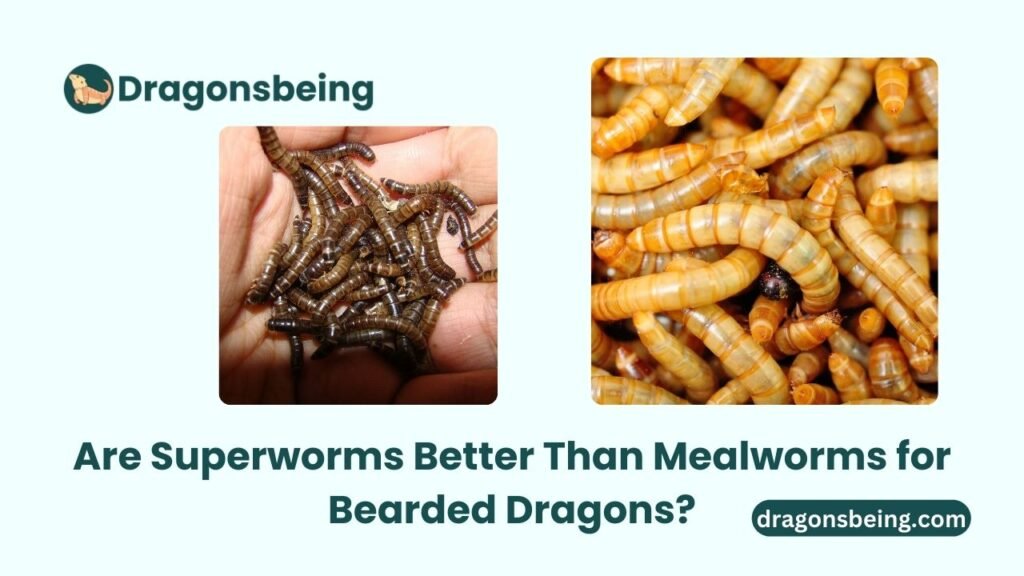Bearded dragons can eat cherries in moderation. These fruits should be offered as an occasional treat rather than a staple.
Cherries are vibrant, sweet fruits loved by many, including bearded dragon owners. While these reptiles enjoy a variety of foods, not all are suitable for daily consumption.
Cherries contain sugar and should only be a rare treat. Their high acidity can also upset a bearded dragon’s stomach.
Preparing cherries properly involves removing the pits and cutting them into small pieces.
Offering a balanced diet is crucial for your pet’s health. Focus on leafy greens, vegetables, and protein sources.
Understanding what foods are safe ensures that your bearded dragon thrives while enjoying tasty treats like cherries on special occasions.
The Nutritional Value Of Cherries
Cherries are tasty and colorful fruits. They offer several health benefits. Understanding their nutritional value helps in deciding if they are suitable for your bearded dragon.
Vitamins And Minerals
Cherries contain various vitamins and minerals. These nutrients support overall health.
| Nutrient | Amount per 100g |
|---|---|
| Vitamin C | 7 mg |
| Vitamin A | 64 IU |
| Potassium | 222 mg |
| Calcium | 18 mg |
These vitamins help boost immunity. They also aid in bone health. Potassium is important for nerve function.
Sugar Content
Cherries are sweet fruits. They contain natural sugars, which can affect health.
- Sugar per 100g: 12g
- Fructose: A natural sugar found in fruits
High sugar content can be a concern for bearded dragons. Too much sugar can lead to health issues.
Moderation is key. Offer cherries as an occasional treat. Balance them with other vegetables and fruits.
Benefits Of Cherries In A Bearded Dragon’s Diet
Cherries can offer various benefits to a bearded dragon’s diet. They are tasty and nutritious. Including cherries can enhance their overall health.
Antioxidants
Cherries are rich in antioxidants. These compounds help fight free radicals in the body. Free radicals can cause cell damage. By consuming cherries, bearded dragons may enjoy:
- Improved immune function
- Reduced inflammation
- Better overall health
Antioxidants protect cells and promote longevity. A healthy bearded dragon is a happy bearded dragon!
Hydration
Cherries have high water content. Hydration is vital for bearded dragons. Proper hydration aids in digestion and skin health. Here are some hydration benefits:
| Benefit | Description |
|---|---|
| Digestive Health | Water helps break down food in the gut. |
| Skin Moisture | Hydrated skin looks healthy and vibrant. |
| Temperature Regulation | Water helps maintain a stable body temperature. |
Offering cherries can support hydration. Always provide fresh water alongside cherries.
Potential Risks Of Feeding Cherries
Feeding cherries to your bearded dragon can pose some risks. While cherries are tasty, they can also be harmful. Understanding these risks is essential for your pet’s health.
Pit Hazards
The cherry pit is a significant concern. It can cause serious problems for bearded dragons. Here are the main risks:
- Choking hazard: The pit can block the throat.
- Intestinal obstruction: A swallowed pit can lead to blockage.
- Toxicity: Cherry pits contain cyanide, which is harmful.
Excess Sugar
Cherries are high in sugar. This can lead to health issues for your bearded dragon. Key points to consider:
- Weight gain: Too much sugar can lead to obesity.
- Digestive problems: High sugar can upset their stomach.
- Diabetes risk: Regularly feeding sugary fruits can increase diabetes chances.
Limit sugary fruits like cherries. Always prioritize a balanced diet for your bearded dragon.
Proper Way To Feed Cherries
Feeding cherries to your bearded dragon requires care. These fruits are tasty but should be given in moderation. Understanding the right preparation techniques and serving size is essential for your pet’s health.
Preparation Techniques
Prepare cherries safely for your bearded dragon. Follow these simple steps:
- Wash the cherries thoroughly to remove pesticides.
- Remove the pits. Pits can be harmful and pose a choking hazard.
- Cut the cherries into small pieces. This makes them easier to eat.
- Serve fresh cherries. Avoid dried or canned cherries with added sugar.
Serving Size
Serving size matters for your bearded dragon. Limit the amount of cherries given:
- Offer cherries as an occasional treat.
- Start with one small piece. Observe how your dragon reacts.
- Do not exceed one or two pieces per week.
Monitor your pet’s health. Look for any signs of discomfort after eating.
| Fruit | Recommended Serving | Frequency |
|---|---|---|
| Cherries | 1-2 small pieces | 1-2 times a week |
Frequency And Moderation
Feeding your bearded dragon cherries can be enjoyable. Yet, it’s essential to know how often to offer them. Moderation is key to keeping your pet healthy.
Recommended Frequency
Cherries should not be a daily treat. Here’s a simple guide:
| Age of Bearded Dragon | Recommended Cherry Frequency |
|---|---|
| Juvenile (0-6 months) | Once every 2 weeks |
| Adult (6 months+) | Once a month |
Cherries contain sugar. Too much sugar can harm your dragon. Always balance their diet with leafy greens and insects.
Signs Of Overfeeding
Watch for signs that your bearded dragon is eating too many cherries:
- Weight gain
- Lethargy
- Loss of appetite
- Diarrhea
If you notice any of these signs, reduce cherry treats. Consult a vet if problems persist. Your dragon’s health is the top priority.
Alternative Fruits And Vegetables
Bearded dragons enjoy a variety of fruits and vegetables. It’s important to choose safe options. Some fruits are healthy treats, while others can be harmful. Always prioritize your pet’s health.
Safe Options
Here are some safe fruits and vegetables for your bearded dragon:
- Blueberries – Packed with antioxidants.
- Strawberries – A sweet, tasty treat.
- Raspberries – Low in sugar, high in fiber.
- Apples – Remove seeds before feeding.
- Carrots – Rich in vitamins and minerals.
- Bell Peppers – Colorful and nutritious.
Offer these fruits in moderation. Always wash them before serving. Cut them into small pieces for easier eating.
Fruits To Avoid
Some fruits can be harmful to bearded dragons. Avoid these:
- Cherries – High in sugar and toxic pits.
- Avocado – Contains persin, which is toxic.
- Citrus Fruits – Too acidic for their stomachs.
Feeding these fruits can cause health issues. Always check before offering new foods.
Monitoring Your Bearded Dragon’s Health
Keeping a close eye on your bearded dragon’s health is vital. A healthy diet and regular care can prevent many issues. Understanding their needs helps you make informed choices.
Regular Check-ups
Regular check-ups are essential for your bearded dragon. A vet can identify health issues early. Schedule visits at least once a year.
- Look for signs of illness:
- Loss of appetite
- Weight loss
- Unusual behavior
- Ask your vet about:
- Diet recommendations
- Parasite checks
- Skin and eye health
Diet Adjustments
Your bearded dragon’s diet affects its health. Monitor what it eats closely. Cherries can be a tasty treat but should be given sparingly.
| Food Item | Frequency | Health Benefits |
|---|---|---|
| Cherries | Occasionally | Vitamins, Antioxidants |
| Leafy Greens | Daily | Calcium, Hydration |
| Insects | 2-3 times a week | Protein, Nutrients |
Limit sugary fruits like cherries. They can upset your dragon’s stomach.
Keep track of any changes in their eating habits. Alter the diet based on their needs and preferences.
Frequently Asked Questions
Can Bearded Dragons Eat Cherries Safely?
Cherries can be given in moderation but should not be a staple in their diet.
What Are The Benefits Of Cherries For Bearded Dragons?
Cherries provide vitamins and hydration, but they are high in sugar.
How Often Can Bearded Dragons Eat Cherries?
Limit cherries to an occasional treat, not more than once a month.
Are Cherry Pits Harmful To Bearded Dragons?
Yes, cherry pits can pose a choking hazard and should be removed before feeding.
What Fruits Are Safe For Bearded Dragons?
Safe fruits include strawberries, blueberries, and mangoes, all in moderation.
What Should Bearded Dragons Eat Daily?
A balanced diet of leafy greens, insects, and occasional fruits is ideal for bearded dragons.
Conclusion
Feeding your bearded dragon cherries can be a fun treat. However, moderation is key. Too much can lead to digestive issues. Always remove the pit and cut the fruit into small pieces. Keep your pet’s health in mind, and consult a vet if unsure.
A balanced diet is essential for their well-being.

Hi, I’m Dr. Michelle Mayers, a veterinary professional with a deep passion for animal health and well-being. Over the years, I’ve dedicated my life to caring for animals and helping pet owners better understand their furry, feathered, or scaly companions. On my blog, Dragonsbeing, I share insights, tips, and stories that aim to educate, inspire, and connect with fellow animal lovers. Join me at Dragonsbeing as we explore the fascinating world of veterinary care and celebrate the special bond between humans and animals!


